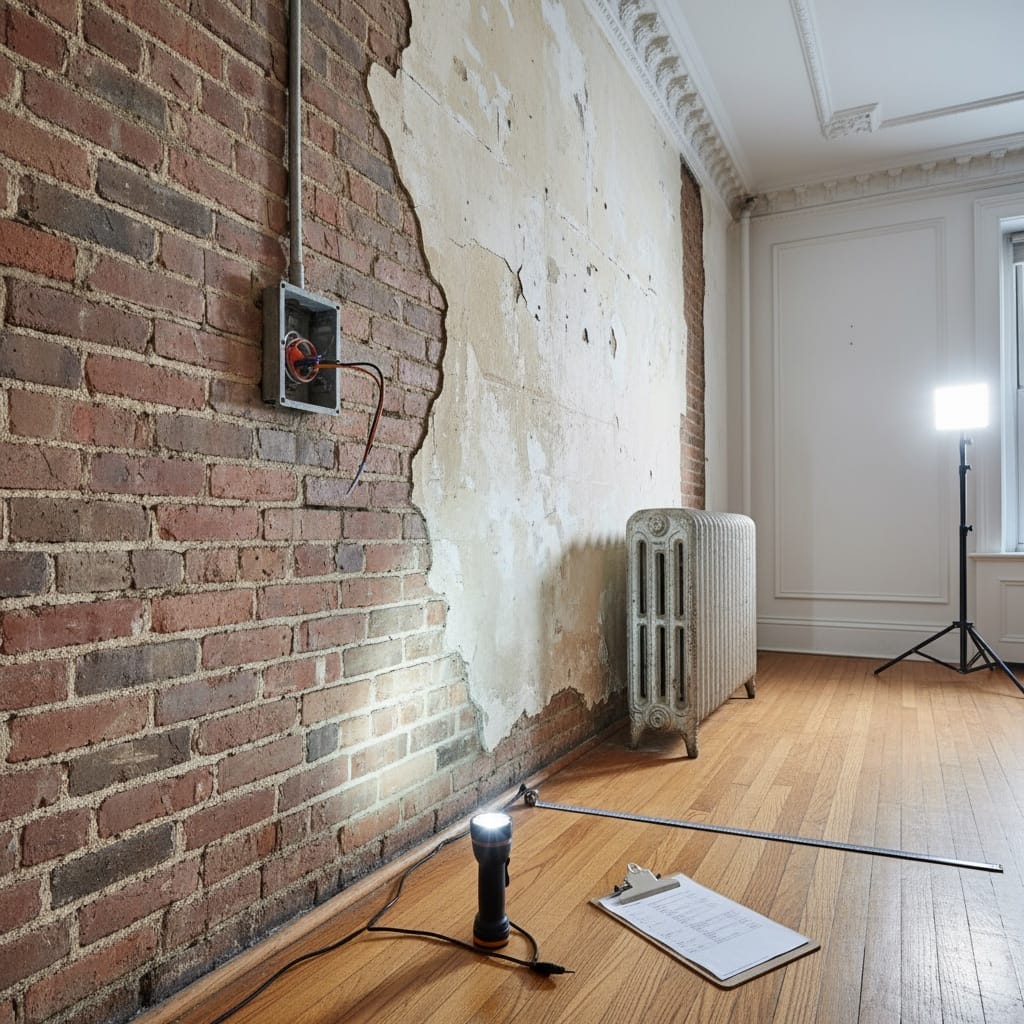Contingency clauses in NYC real estate contracts serve as essential safety nets in New York City’s $52 billion real estate market, protecting both buyers and sellers from financial losses during property transactions. These protective measures become critical when Manhattan’s median condo price reaches $1.2 million and deposits routinely exceed $120,000.
Understanding contingency clauses in NYC real estate contracts helps buyers navigate transactions worth hundreds of thousands of dollars while preserving financial security. Unlike other markets where contingencies are standard practice, New York’s competitive landscape often pressures buyers to waive protections, making strategic contingency planning essential for successful outcomes.
The 8 most critical NYC contingency types include mortgage financing protection, co-op board approval safeguards, inspection allowances, appraisal guarantees, title clearance verification, home sale dependencies, attorney review periods, and building financial examinations. Each contingency addresses unique risks present in New York’s complex real estate environment, from pre-war building complications to cooperative board rejections.
New York’s 75% co-op market share in Manhattan creates contingency scenarios rarely encountered elsewhere, while the city’s aging housing stock—with 78% of buildings constructed before 1960—demands specialized inspection and title contingencies. Professional guidance helps buyers understand how contingency clauses in NYC real estate contracts provide protection throughout the purchase process.
What Are Contingency Clauses in NYC Real Estate?

Contingency clauses protect NYC buyers and sellers by establishing specific conditions that must be satisfied before real estate contracts become legally enforceable. These provisions function as escape mechanisms, allowing parties to exit transactions without penalty when predetermined requirements aren’t met within specified timeframes.
New York’s contingency structure differs significantly from national standards due to the state’s unique legal requirements and market dynamics. The New York State Multiple Dwelling Law governs cooperative and condominium transactions, while the NYC Department of Buildings regulations impact inspection and safety contingencies for the city’s 1.1 million buildings.
Statistical data reveals that 73% of NYC contracts include at least 2 contingencies, with financing and inspection protections appearing most frequently. Manhattan transactions average 2.8 contingencies per contract, while outer borough deals typically include 3.2 protective clauses due to greater buyer leverage and longer closing timelines.
Timeline requirements specific to NYC typically range from 30-60 days for major contingencies, though cooperative board approvals can extend 6-8 weeks in competitive buildings. These extended periods reflect the complexity of New York’s approval processes, where multiple parties must coordinate reviews, inspections, and financial verifications before transactions can proceed to closing.
The enforceability of contingency clauses in NYC real estate contracts depends on precise language and strict adherence to notice requirements. New York courts consistently uphold clearly written contingency clauses while rejecting vague or improperly executed provisions, making professional legal review essential for protecting buyer interests in high-value transactions.
The 8 Essential Contingency Clauses for NYC Real Estate
1. Mortgage/Financing Contingency
Mortgage contingency clauses protect NYC buyers from losing deposits if they cannot secure financing within the specified timeframe, typically 30-45 days in Manhattan and 45-60 days in outer boroughs. This protection becomes critical when deposit amounts range from $65,000 to $150,000 in Manhattan’s luxury market.
The distinction between conditional approval and full mortgage commitment proved costly in the landmark case Sanjana v. King, where buyers forfeited a $110,000 deposit after mistaking conditional approval for final commitment. The New York County Supreme Court ruled that conditional approval letters requiring additional documentation don’t satisfy mortgage contingency requirements, leaving buyers liable for their full deposit.
Proper mortgage contingency language must specify loan amount, interest rate parameters, term length, and commitment deadline dates. Standard NYC contingencies require “unconditional written commitment” from institutional lenders, protecting buyers from last-minute loan denials due to property or borrower issues discovered during underwriting.
Manhattan’s competitive environment often pressures buyers to shorten financing contingency periods to 21-30 days, while luxury real estate market transactions may include rate lock provisions protecting against interest rate increases during extended closing periods.
Cost implications of mortgage contingencies extend beyond deposit protection, potentially saving buyers $75,000-$200,000 in purchase commitments when financing falls through. However, buyers must actively cooperate with lenders and provide requested documentation promptly, as failure to act in good faith can void contingency protections.
2. Inspection Contingency
Inspection contingencies in NYC allow buyers to exit contracts when property inspections reveal major structural, mechanical, or safety issues exceeding $15,000 in estimated repair costs. This protection proves essential in New York’s aging housing stock, where 75% of buildings predate modern construction standards.
Pre-war building inspection requirements address common issues including outdated electrical systems, lead paint presence, and structural deterioration. Professional inspections cost $800-$1,500 for typical NYC properties, with specialized testing for asbestos, mold, and environmental hazards adding $500-$1,200 to total inspection expenses.
The NYC Department of Buildings violation database must be reviewed during inspection periods, as outstanding violations can delay closings and create unexpected repair obligations. Class A violations require immediate correction, while Class B violations must be resolved within 30 days of notice.

Co-op vs. condo inspection differences reflect varying ownership structures and building responsibilities. Cooperative buyers typically inspect individual units and review building-wide systems through financial documents, while condominium purchasers can inspect both unit interiors and common area infrastructure directly.
Buyers discovering major defects can request seller repairs, negotiate price reductions, or exit contracts entirely when inspection contingencies are properly exercised. Sellers frequently prefer credit adjustments over repair work, allowing buyers to address issues with contractors of their choosing after closing.
3. Co-op Board Approval Contingency
Co-op board approval contingency protects buyers in the 78% of Manhattan residential sales involving cooperative apartments, allowing contract cancellation if boards reject applications without penalty. This safeguard becomes essential when application processes require 6-10 weeks and extensive financial disclosure.
Typical board approval timelines extend 4-8 weeks from application submission to final decision, with luxury buildings often requiring longer review periods. The Upper East Side and Financial District co-ops maintain particularly rigorous standards, requiring 2-3 years of maintenance reserves and debt-to-income ratios below 28%.
Interview processes and documentation requirements vary significantly among buildings but typically include 3 years of tax returns, bank statements, employment verification, and personal reference letters. Some buildings require notarized financial statements, while others accept certified public accountant prepared documents exclusively.
Board rejection rates average 15-25% across Manhattan cooperatives, with higher rejection rates in buildings maintaining strict owner-occupancy requirements or age-restricted policies. Buyers should research building policies through NYC homebuyers resources before submitting applications.

Sublet policy implications affect both board approval likelihood and future resale value. Buildings permitting unlimited subletting typically approve buyers with lower financial reserves, while buildings restricting rentals require stronger buyer financial profiles but maintain higher property values.
4. Appraisal Contingency
Appraisal contingencies ensure NYC properties meet lender valuation requirements, protecting buyers when market values fall below contract prices in volatile neighborhoods. This protection proves critical when Manhattan’s median condo price reaches $1.2 million and neighborhood valuations fluctuate 15-25% annually.
Appraisal gap coverage has become standard practice in competitive markets, where buyers agree to pay specific amounts above appraised value to secure properties. Gaps typically range from $25,000-$75,000 in Manhattan, with Brooklyn real estate transactions showing smaller but increasing gap requirements.
Neighborhood-specific valuation challenges emerge in rapidly gentrifying areas where comparable sales lag current market conditions. Appraisers rely on sales within 90 days and 0.5-mile radius, creating valuation difficulties in transitional neighborhoods with limited recent transactions.
The impact on different property types varies significantly, with co-ops often appraising below market value due to financing restrictions, while condos and townhouses typically meet contract prices. Lenders apply stricter appraisal standards to co-ops due to board approval requirements and transfer restrictions.
Buyers can address appraisal shortfalls through additional down payment, seller price reduction, or contract cancellation when contingencies permit. Professional appraisal review becomes essential when property values appear inconsistent with neighborhood trends or recent comparable sales.
5. Title Contingency
Title contingencies protect buyers from purchasing properties with liens, easements, or ownership disputes that could cost thousands in legal fees to resolve. New York’s complex property history creates unique title risks requiring specialized examination and insurance protection.
Common title problems in pre-war buildings include mechanic’s liens from historical construction work, unpaid property taxes from previous owners, and boundary disputes from inaccurate surveys. The New York Department of Financial Services regulates title insurance requirements, mandating comprehensive searches extending to the first recorded deed.
NYC Department of Finance tax lien searches reveal outstanding property tax obligations that transfer to new owners at closing. These liens take priority over mortgages and can result in foreclosure proceedings if left unresolved, making title review essential for buyer protection.
Title insurance premiums range from 0.4-0.6% of purchase price, with simultaneous owner and lender policies qualifying for discounted rates. Title insurance protects against fraud, forgery, and undisclosed heirs claiming ownership rights after closing.
Professional title examination typically requires 2-3 weeks, during which attorneys review public records, court documents, and property indexes. Buyers should allow sufficient time for title clearing when problems emerge, as resolution can extend closing dates by several weeks.
6. Home Sale Contingency
Home sale contingencies allow buyers to exit contracts if they cannot sell current properties within agreed timeframes, typically 60-90 days in NYC’s market. This protection proves essential for buyers requiring sale proceeds to fund new purchases but creates seller resistance in competitive situations.
Seller resistance in competitive NYC markets leads to frequent contingency rejection, particularly when multiple offers exist above asking price. Cash buyers and those waiving sale contingencies receive preferential treatment from sellers seeking guaranteed closings without external dependencies.
Alternative financing strategies include bridge loans allowing buyers to purchase before selling, with interest rates typically 2-4% above conventional mortgage rates. These short-term solutions provide competitive advantages while carrying additional costs ranging from $2,000-$5,000 monthly on $500,000 loans.
Buyers should consider how much house can I afford calculations when evaluating sale contingencies, ensuring adequate financial reserves for carrying two properties temporarily if sale timelines extend beyond expectations.
Market timing considerations affect contingency strategy, with spring and fall seasons providing optimal selling conditions but increased competition for purchases. Buyers selling during slower winter months may require extended contingency periods to complete transactions successfully.
7. Attorney Review Contingency
Attorney review contingencies provide 3-5 business days for buyers’ legal counsel to examine and approve contract terms, a standard practice in New York real estate transactions. This brief period allows professional review of complex legal documents before commitments become irrevocable.
New York’s requirement for attorney involvement in real estate transactions makes legal review essential for identifying problematic contract language, excessive fees, or unusual seller demands. Attorneys typically charge $1,500-$3,500 for complete transaction representation, including contract review, title examination, and closing attendance.
Contract modifications during attorney review can address financing terms, closing date adjustments, or repair responsibilities discovered through initial property examination. Both parties must agree to changes, with unresolved disputes potentially leading to contract cancellation without penalty.
Professional legal counsel becomes particularly important for TLC properties requiring extensive renovation work, where contract language must address existing violations, permit requirements, and repair cost allocations between buyers and sellers.
8. Building Financial Review Contingency
Building financial review contingencies allow examination of co-op or condo financial statements, reserve funds, and pending assessments before finalizing purchases. This protection proves essential when buildings face major capital improvements or financial difficulties affecting future maintenance costs.
Reserve fund analysis reveals building financial health through examination of collected reserves, planned improvements, and deferred maintenance obligations. Well-managed buildings maintain reserves equal to 10-20% of annual operating budgets, while buildings with inadequate reserves may require special assessments for major repairs.
Pending assessment disclosure requirements mandate seller revelation of known upcoming charges for roof replacements, facade repairs, or mechanical system upgrades. These assessments can range from $5,000-$50,000 per unit, significantly impacting buyer financial planning and loan qualification.
Building financial review typically requires 10-15 days for accountant examination of complex financial documents. Buyers should budget $1,500-$2,500 for professional financial analysis of luxury buildings with extensive amenities or recent construction.
NYC Borough-Specific Contingency Considerations
Manhattan Considerations
Manhattan’s competitive market dynamics significantly impact contingency strategy, with multiple offer situations often requiring streamlined contingency packages to remain competitive. Co-op prevalence creates unique board approval requirements affecting 75% of residential transactions, while high transaction values make deposit protection essential.
Luxury condominiums in buildings like Hudson Yards and Tribeca command premium prices but offer greater financing flexibility than cooperative alternatives. These properties typically accommodate standard contingency packages while requiring faster processing timelines due to seller demand.
Pre-war co-op buildings throughout the Upper East Side and Upper West Side maintain strict financial requirements and lengthy approval processes. Buyers should anticipate 8-12 week approval timelines and substantial financial documentation requirements when pursuing these prestigious addresses.
Brooklyn Considerations
Brownstone-specific inspection requirements address unique structural concerns including foundation settling, original heating systems, and historical renovation quality. Professional inspections often require structural engineers for 19th-century construction evaluation, adding $1,000-$2,000 to standard inspection costs.
Emerging neighborhoods like Gowanus and Industry City present appraisal challenges where recent sales may not reflect current market conditions. Buyers should consider extended appraisal contingency periods and gap coverage provisions when purchasing in rapidly appreciating areas.
Artist loft and converted building considerations require specialized inspection for proper certificate of occupancy documentation and legal conversion compliance. The NYC Department of Buildings maintains strict regulations for residential conversions, making legal occupancy verification essential.
Queens & Staten Island Considerations
Single-family home contingencies in Queens and Staten Island often include septic system inspections, well water testing, and property boundary surveys uncommon in Manhattan transactions. These additional inspections typically add $1,500-$3,000 to total buyer costs but provide essential protection for suburban-style properties.
Flood zone considerations particularly impact Staten Island properties following Hurricane Sandy, where FEMA flood maps affect insurance requirements and property values. Buyers should verify flood zone designations and insurance availability before finalizing purchases in coastal areas.
Staten Island properties often provide greater contingency flexibility due to less competitive market conditions, allowing buyers to include comprehensive protection packages without sacrificing offer competitiveness.
When to Waive Contingencies in NYC
Waiving contingencies can strengthen offers in NYC’s competitive market, but buyers risk losing deposits averaging $75,000-$200,000 if transactions fail. Strategic contingency waiver requires careful risk assessment and adequate financial preparation for potential losses.
Cash buyers possess the strongest position for contingency waiver, eliminating financing risks while maintaining inspection and title protection. These buyers can safely waive mortgage contingencies while preserving other essential safeguards for property condition and ownership verification.
Pre-approved buyers with substantial reserves may selectively waive contingencies based on property type and market conditions. Buyers should maintain inspection contingencies for pre-war properties while potentially waiving appraisal protection when offering above market value in competitive situations.
Multiple offer situations often require strategic contingency reduction to compete effectively. Buyers should prioritize essential protections while waiving less critical contingencies, maintaining financing and inspection safeguards while potentially sacrificing home sale or extended review periods.
Market timing considerations affect waiver strategy, with spring market conditions often requiring aggressive contingency packages while winter transactions may accommodate standard protection levels. Buyers should consult with real estate attorney professionals when evaluating waiver strategies.
Risk assessment frameworks should evaluate total financial exposure, alternative housing options, and buyer financial reserves before waiving protective contingencies. Buyers risking deposits exceeding 10% of annual income should maintain comprehensive contingency protection regardless of market conditions.
Legal Requirements and Enforceability
New York State real estate law requires specific contingency language and notice procedures to ensure enforceability. Courts consistently uphold clearly written contingencies while rejecting vague or improperly documented protective clauses, making precise drafting essential for buyer protection.
Contract enforceability standards demand contingencies specify triggering events, satisfaction methods, and deadline requirements. Ambiguous language regarding “satisfactory” inspections or “acceptable” financing terms creates enforcement difficulties when disputes arise between parties.
Common legal disputes emerge from improper contingency exercise, inadequate notice provision, or failure to act in good faith during contingency periods. Buyers must comply with all contract requirements and deadlines to preserve contingency rights and avoid deposit forfeiture.
Professional legal representation becomes essential for navigating complex contingency requirements and New York’s detailed real estate regulations. The NYC Department of Buildings maintains extensive regulations affecting property transactions that require professional interpretation.
Real estate attorneys charge $1,500-$3,500 for complete transaction representation, including contingency drafting, exercise notifications, and dispute resolution when problems arise during contract performance periods. Understanding contingency clauses in NYC real estate contracts requires professional guidance for complex legal requirements.
Cost Analysis of NYC Contingencies
Financial breakdown of contingency-related expenses helps buyers budget for comprehensive property protection while understanding cost-benefit relationships. Professional services required for contingency exercise typically cost $5,000-$12,000 but can save buyers hundreds of thousands in problematic transactions.
Inspection costs range from $500-$1,500 for standard property examinations, with specialized testing for environmental hazards, structural issues, or mechanical systems adding $500-$2,000 to total expenses. These costs represent minimal investment compared to potential repair obligations discovered through professional examination.
Attorney fees average $1,500-$3,500 for complete transaction representation, including contract negotiation, contingency drafting, and closing services. Professional legal representation provides essential protection for transactions averaging $750,000-$1.2 million in Manhattan’s market.
Appraisal fees typically cost $500-$800 for standard residential properties, with luxury condominiums and unique properties requiring $800-$1,200 for specialized valuation services. These expenses are often recoverable from lenders as part of mortgage origination costs.
Title insurance premiums range from 0.4-0.6% of purchase price, providing comprehensive protection against ownership defects and legal challenges. Simultaneous owner and lender policies qualify for reduced premiums through Title Insurance Rate Service Association approved schedules.
Potential savings from exercising contingencies can exceed $100,000-$500,000 when buyers discover major property defects, financing problems, or title issues requiring extensive resolution efforts. These protective measures justify modest upfront costs through risk mitigation and deposit preservation.
Expert Tips for NYC Buyers and Sellers
Timeline management strategies require careful coordination of multiple contingency deadlines to avoid conflicts and ensure adequate review periods. Buyers should create contingency calendars tracking inspection dates, financing deadlines, and attorney review periods to prevent inadvertent waiver through deadline expiration.
Documentation requirements vary among contingency types but typically include written notices, professional reports, and formal correspondence with opposing parties. All contingency exercise must be documented in writing and delivered according to contract notice provisions to preserve buyer rights.
Communication protocols should establish clear channels between buyers, sellers, attorneys, and real estate agents to ensure timely information exchange during contingency periods. Misunderstandings regarding deadlines or requirements can result in expensive disputes and potential deposit forfeiture.
Red flags to avoid include contractors offering immediate repair estimates without proper examination, lenders promising unrealistic approval timelines, or sellers pressuring buyers to waive essential protections. Buyers should maintain realistic expectations for contingency processing times and professional service requirements.
Working with experienced Robert DeFalco Realty agents provides access to professional networks including inspectors, attorneys, and lenders familiar with NYC’s unique market requirements. These relationships facilitate smooth contingency processing and help buyers avoid common pitfalls in complex transactions.
Negotiation strategies should balance buyer protection needs with seller requirements for transaction certainty. Experienced agents can structure contingency packages maximizing buyer safety while maintaining offer competitiveness in challenging market conditions.
Seasonal Market Considerations
Spring market dynamics create heightened competition requiring streamlined contingency packages, while increased inventory provides buyers with alternative options when contingencies reveal property problems. Buyers should prepare aggressive offers with selective contingency protection during peak selling seasons.
Summer transactions often involve families relocating for school schedules, creating timeline pressure that can compromise contingency thoroughness. Buyers should allow adequate time for professional services and avoid rushing inspections or financial reviews despite scheduling pressure.
Fall market conditions typically provide greater negotiating flexibility as seller urgency increases before winter market slowdown. Buyers may successfully negotiate comprehensive contingency packages while maintaining competitive positioning against fewer competing offers.
Winter opportunities often allow full contingency protection due to reduced competition and seller motivation for year-end closings. These conditions favor buyers seeking maximum protection while potentially securing favorable pricing terms.
Future Market Outlook
New York City’s real estate market continues evolving with changing demographics, construction patterns, and regulatory requirements affecting contingency strategies. The City of Yes housing plan may impact future development patterns and building approval processes, potentially affecting inspection and approval contingencies.
Interest rate fluctuations significantly impact mortgage contingency importance, with rising rates making financing protection more critical while falling rates may reduce contingency necessity for qualified buyers. Market volatility increases the value of comprehensive protective measures.
Building conversion trends from office to residential use create new inspection and contingency considerations as properties transition between use categories. Buyers should anticipate specialized contingency requirements for converted buildings with unique mechanical and structural characteristics.
Climate change impacts on coastal properties may expand flood zone considerations and insurance requirements affecting title and environmental contingencies. Staten Island and low-lying areas of Brooklyn and Queens face increasing scrutiny from lenders and insurers.
The evolving landscape of contingency clauses in NYC real estate contracts requires buyers to stay informed about regulatory changes, market conditions, and professional service requirements that protect their investments in New York’s dynamic property market.
Frequently Asked Questions
Q: What contingencies should I include when buying a co-op in Manhattan? A: Manhattan co-op purchases require 4 essential contingencies: mortgage contingency (30-45 days), board approval contingency (6-8 weeks), attorney review contingency (3-5 days), and building financial review contingency (10-15 days).
Q: How long do I have for inspections in Brooklyn real estate contracts? A: Brooklyn inspection contingencies typically provide 7-14 days to complete professional inspections, with an additional 5-7 days to request repairs or negotiate price adjustments based on findings.
Q: Can I waive contingencies when buying in Queens to make my offer stronger? A: Waiving contingencies in Queens can strengthen offers, but buyers risk losing deposits averaging $25,000-$75,000. Cash buyers and those with mortgage pre-approval can safely waive financing contingencies.
Q: What happens if my mortgage contingency expires in Staten Island? A: If your Staten Island mortgage contingency expires without proper notice, you may forfeit your deposit and remain obligated to purchase the property, potentially losing $15,000-$50,000 in earnest money.
Q: Are inspection contingencies common in NYC luxury condos? A: Inspection contingencies appear in only 35% of luxury NYC condo contracts due to competitive market conditions, but buyers should include them for properties over $2 million to protect significant deposits.
Q: How much does a real estate attorney cost for contingency review in NYC? A: NYC real estate attorneys charge $1,500-$3,500 for contract review and contingency negotiations, providing essential protection for transactions averaging $650,000-$1.2 million.
Q: What’s the difference between hard and soft contingencies in New York? A: Hard contingencies in New York require active approval from specific parties, while soft contingencies automatically expire after predetermined dates without action required.
Q: Can sellers refuse contingency requests in Manhattan’s market? A: Manhattan sellers frequently reject contingency-heavy offers in favor of cleaner contracts, especially in competitive situations with multiple bidders above asking price.
Conclusion
Contingency clauses in NYC real estate contracts provide essential protection for buyers navigating one of America’s most complex and expensive property markets. These safeguards preserve financial security while allowing professional examination of properties, financing terms, and legal documentation before irrevocable commitment.
Successful contingency strategy requires balancing comprehensive protection with market competitiveness, utilizing professional guidance from real estate agents, attorneys, and inspectors familiar with New York’s unique requirements. Buyers should prioritize essential protections while remaining flexible on less critical contingencies based on property type and market conditions.
The investment in professional contingency services—typically $5,000-$12,000 for comprehensive protection—provides significant value when compared to potential losses from problematic transactions or deposit forfeiture. These protective measures enable informed decision-making while preserving buyer options throughout the purchase process.
Understanding contingency clauses in NYC real estate contracts empowers buyers to make informed decisions while protecting substantial financial investments in New York’s competitive market. Professional guidance helps navigate complex requirements while maximizing protection and transaction success rates.
For expert guidance on NYC real estate transactions and contingency strategy, contact the experienced team at Robert DeFalco Realty, where over 30 years of New York market expertise helps buyers and sellers navigate complex transactions with confidence and professional support.
This guide provides general information about NYC real estate contingencies and should not replace professional legal or real estate advice. Consult with qualified attorneys and real estate professionals for guidance specific to your transaction and circumstances.

